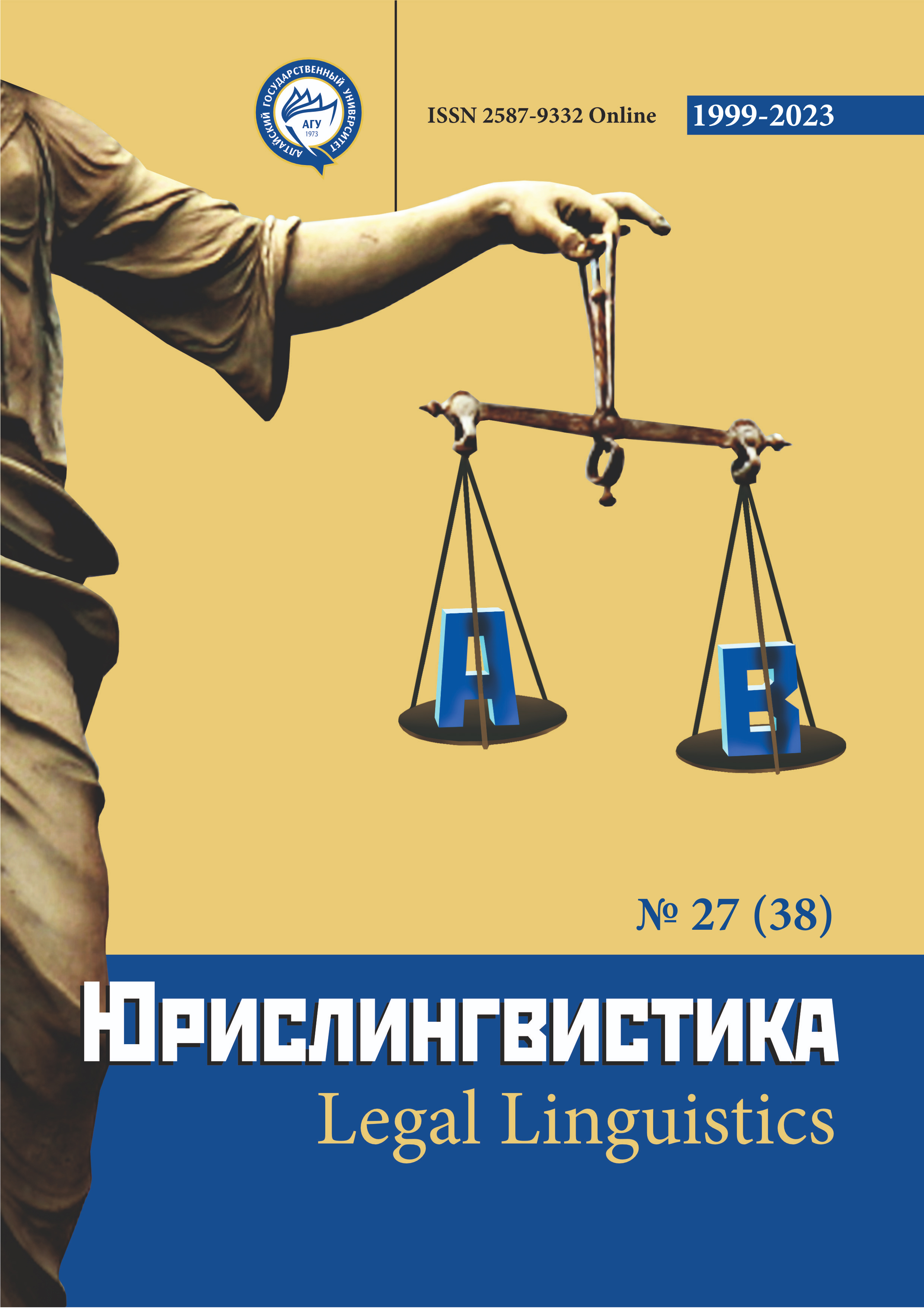Michel Foucault's idea of "biopolitics" in the context of contemporary legal theory methodology
Abstract
This article explores the concept of "biopolitics" developed by French philosopher Michel Foucault in the second half of the 20th century. In his scientific legacy Michel Foucault brought many new ideas that are relevant to the social sciences and humanities, including jurisprudence. According to Michel Foucault's logic, "biopolitics" is a manifestation of "power" in general and "disciplinary power" - in particular. The main goal of "biopolitics" is to ensure complete control not only over the social but also over the biological life of each individual. Due to its close correlation with social reality, "biopolitics" is in tune with the current issues of theoretical legal research. Modern legal theory is looking for new approaches to the understanding of law. But modern methodologies are difficult to imagine without the dense involvement of the cognitive subject in the cognitive process. It is impossible not to be involved in "biopolitics". This is where the necessary connection between "biopolitics" and contemporary theoretical and legal research comes into play. Through the prism of "biopolitics", the article attempts to rethink the concept of "the limits of legal regulation" in the "digital age". Thus, the article attempts to update Michel Foucault's idea of "biopolitics" from the perspective of legal theory. The article concludes that Michel Foucault's idea of "biopolitics" has considerable research potential for theoretical and legal research, since the consideration of "the limits of legal regulation" through "biopolitics" has shown their mobility as a phenomenon of legal reality. It is thus evident that Michel Foucault's philosophical ideas are markedly enriching the context of contemporary legal-theoretical research methodology.
Downloads
Copyright (c) 2024 Лидия Волокитина

This work is licensed under a Creative Commons Attribution 4.0 International License.
The authors, which are published in this journal, agree to the following conditions:
1. Authors retain the copyright to the work and transfer to the journal the right of the first publication along with the work, at the same time licensing it under the terms of the Creative Commons Attribution License, which allows others to distribute this work with the obligatory indication of the authorship of this work and a link to the original publication in this journal .
2. The authors retain the right to enter into separate, additional contractual agreements for the non-exclusive distribution of the version of the work published by this journal (for example, to place it in the university depository or to publish it in a book), with reference to the original publication in this journal.
3. Authors are allowed to post their work on the Internet (for example, in a university repository or on their personal website) before and during the review process of this journal, as this may lead to a productive discussion, as well as more links to this published work (See The Effect of Open Access).










